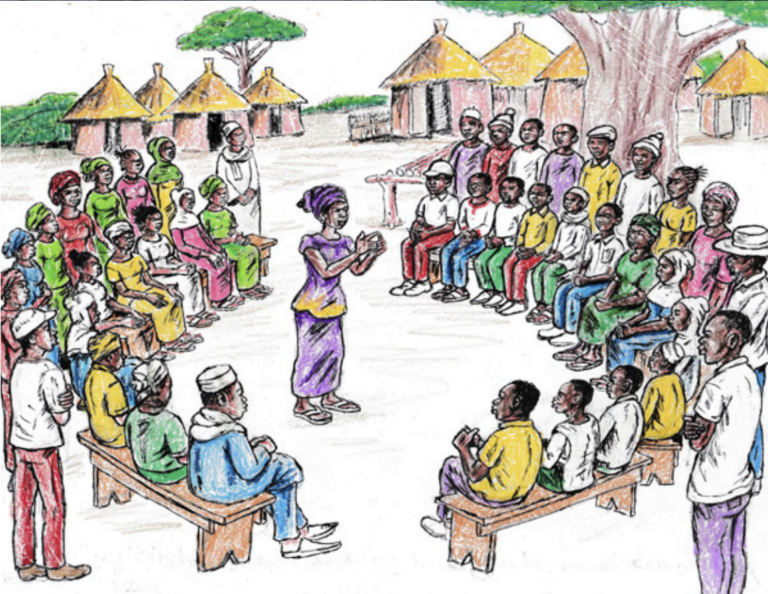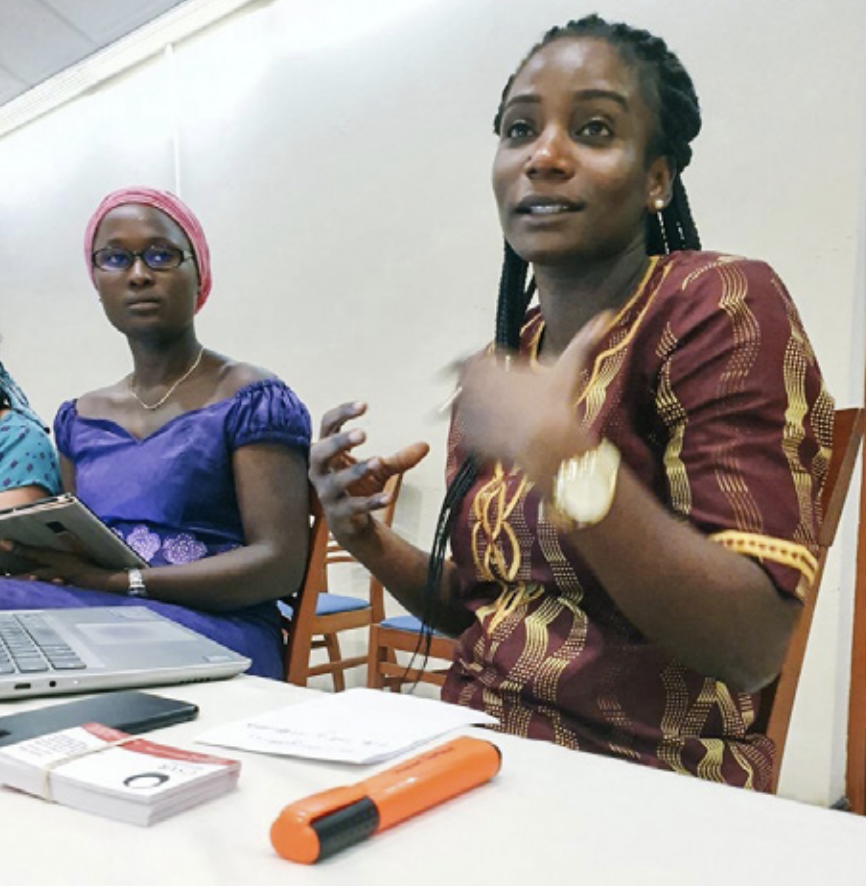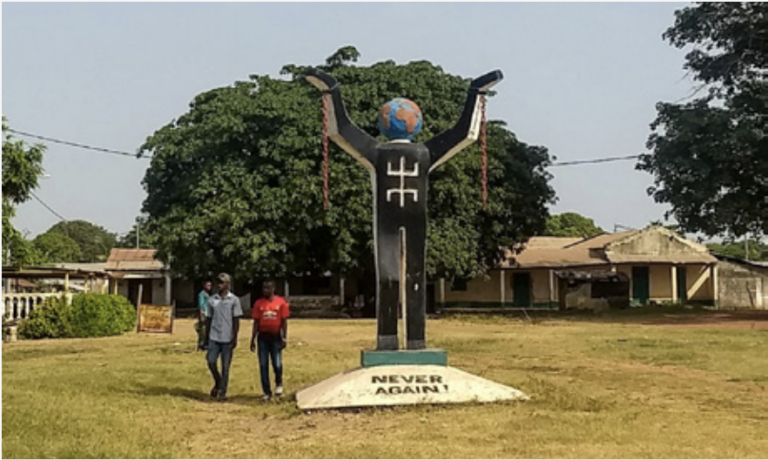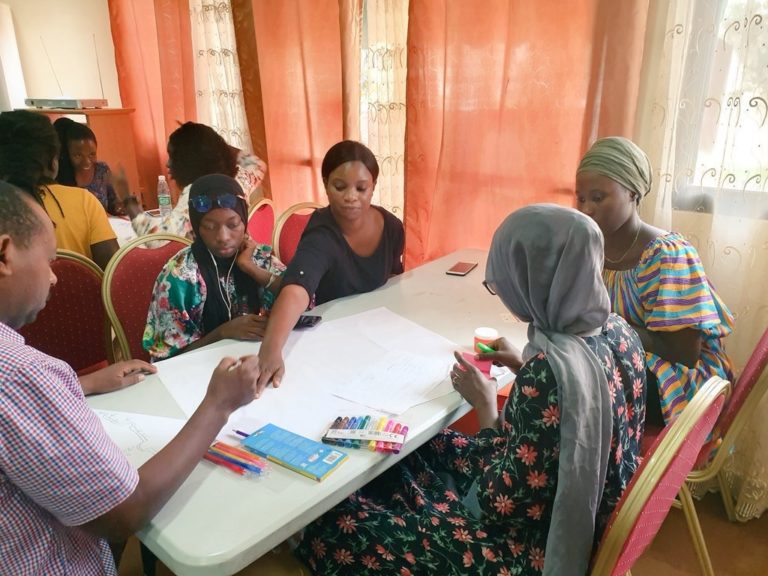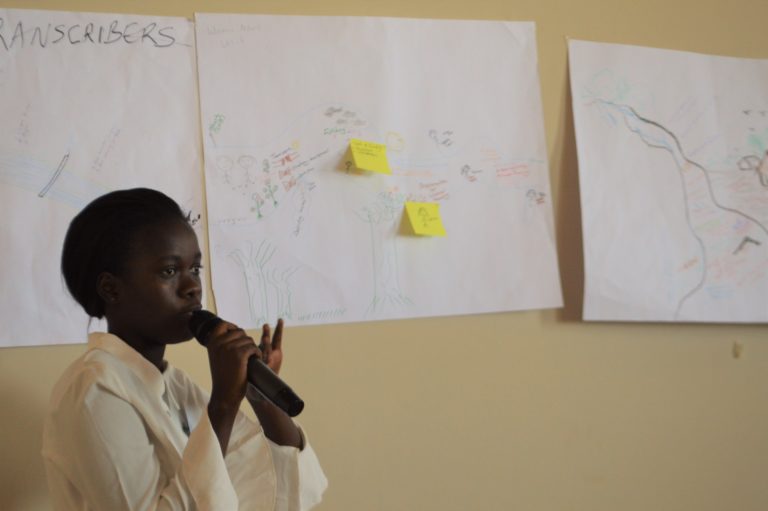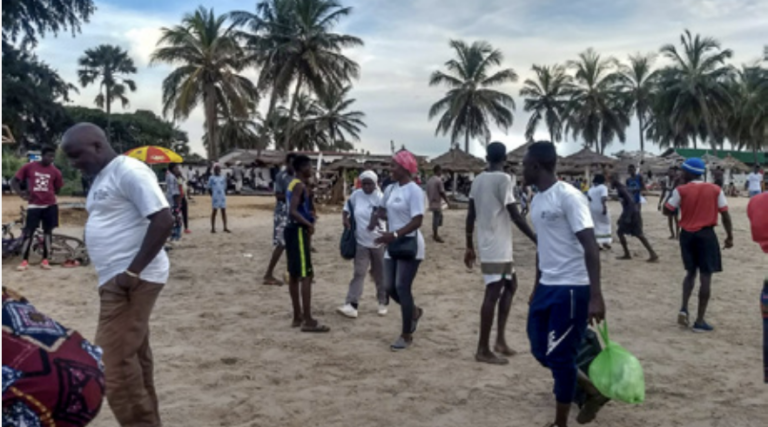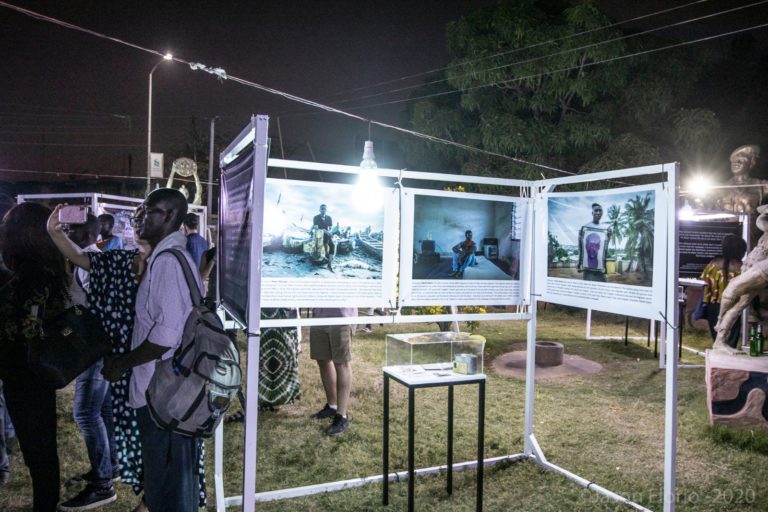Inclusive Justice in the Gambia
Almost all Gambians are victims in some way of the 1994-2016 authoritarian regime and the pervasiveness of torture and detention that has had far-reaching trauma effects at both an individual and community level. As Gambia embarks on a process of dealing with the dictatorship’s legacy, the GIJTR is helping to address a need for a more sustained approach to ensure that victims’ voices are at the forefront of the transitional justice process.
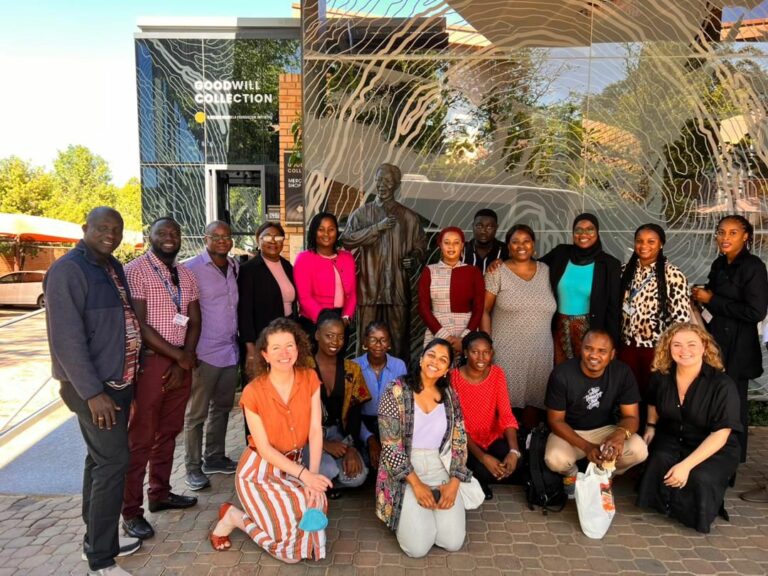
Context
From 1994-2016, the Yahya Jammeh regime in the Gambia was characterized by gross human rights violations, including torture, enforced disappearances, detention without trial, and extrajudicial killings. During this time, and with the assistance of his security forces, Jammeh aimed to silence all dissident voices, particularly journalists, human rights defenders, student and religious leaders, political opposition members, judiciary officials, and security force personnel. Many eventually fled the country out of fear. In addition to the human rights violations, Jammeh’s regime created a deep chasm between different ethnic groups, fueling underlying rivalry between the minority Jola people and the majority Mandinka. Many Gambians perceived Jammeh to have favored his own ethnic group, the Jola, over the Mandinka and Fula.
The December 2016 election of opposition candidate Adama Barrow in The Gambia marked an end to more than two decades of authoritarian rule under former President Yahya Jammeh and ushered in the initiation of transitional justice processes. This included the establishment of the Truth, Reconciliation and Reparations Commission (TRRC) which was mandated to create an impartial historical record of violations and abuses of human rights from July 1994 – January 2017 under Jammeh’s regime. The TRRC held public hearings from the January 2019 until May 2021. During this period, 392 witnesses testified, including people who were mentioned in relation to committing crimes, witnesses, and victims. The final TRRC report was submitted to the president on the 25th of November 2021, and made public on the 24th of December 2021. The TRRC’s findings included unlawful killings, enforced disappearances, torture, and sexual and gender-based violence. Following the report’s release, the Ministry of Justice (MOJ) published a White Paper on behalf of the Government in which most of the TRRC’s recommendations were accepted. The MOJ continues to oversee the implementation of the implementation of transitional justice processes in The Gambia and the National Human Rights Commission (NHRC) is tasked with monitoring the implementation of the TRRC recommendations.
Project Details
The Global Initiative for Justice, Truth and Reconciliation (GIJTR), together with local partners, have worked in a phased approach to contribute to post-conflict truth, justice, and reconciliation efforts by ensuring that multiple stakeholders are supported to actively and knowledgeably engage in the transitional justice process, and by bringing diverse groups together to build consensus on common issues and begin a process of trust-building and healing for the many victims of the Jammeh regime. Since 2019, GIJTR partners have trained a core group of 13 Gambian CSOs in skills around strategically engaging with transitional justice processes, designing and implementing participatory awareness-raising initiatives and advocacy campaigns, and integrating community psychosocial support strategies. Over the course of its first three phases, GIJTR’s programming in Gambia has evolved from training civil society to supporting them in their self-designed efforts to bolster the voices of victims and survivors in the country’s TJ process and to meet victims’ wide-ranging needs. Challenges of securing justice, receiving reparations, seeking truth and building a peaceful and cohesive society remain at the forefront for victims and CSOs. GIJTR promotes a coordinated and inclusive approach to implementing the TRRC’s recommendations and a sustained commitment to transitional justice goals.
GIJTR’s local partners remain unceasingly engaged in pushing forward a victim-centered transitional justice process in order to ensure that the gains made by a burgeoning transitional justice process do not falter with the conclusion of the TRRC’s work.
Project Objectives
Create opportunities for women and other marginalized Gambians to document and share their narratives of human rights violations beyond the close of the TRRC
Through arts-based documentation and community-led dialogues, facilitate ways for women and marginalized members of Gambian society to share their experiences and voice their expectations of the transitional justice process in a safe and confidential setting.
Build the capacities of local civil society organizations to engage in transitional justice processes and awareness raising
Increase the capacities of local CSOs by providing targeted training, monitoring and support, as well as support a group of local CSOs and media to raise awareness and provide information about the transitional justice process to all Gambians inside the country as well as to the Diaspora community.
Strengthen psychosocial support for survivors
Build the capacity of local CSOs and Truth Commission staff to provide psychosocial support for survivors and strengthen current referral mechanisms for survivors of gross human rights violations.
Enable survivors to more directly engage with the transitional justice processes in the country
Provide support for all survivors to access and engage with the transitional justice processes, supporting healing, reintegration and community reconciliation.
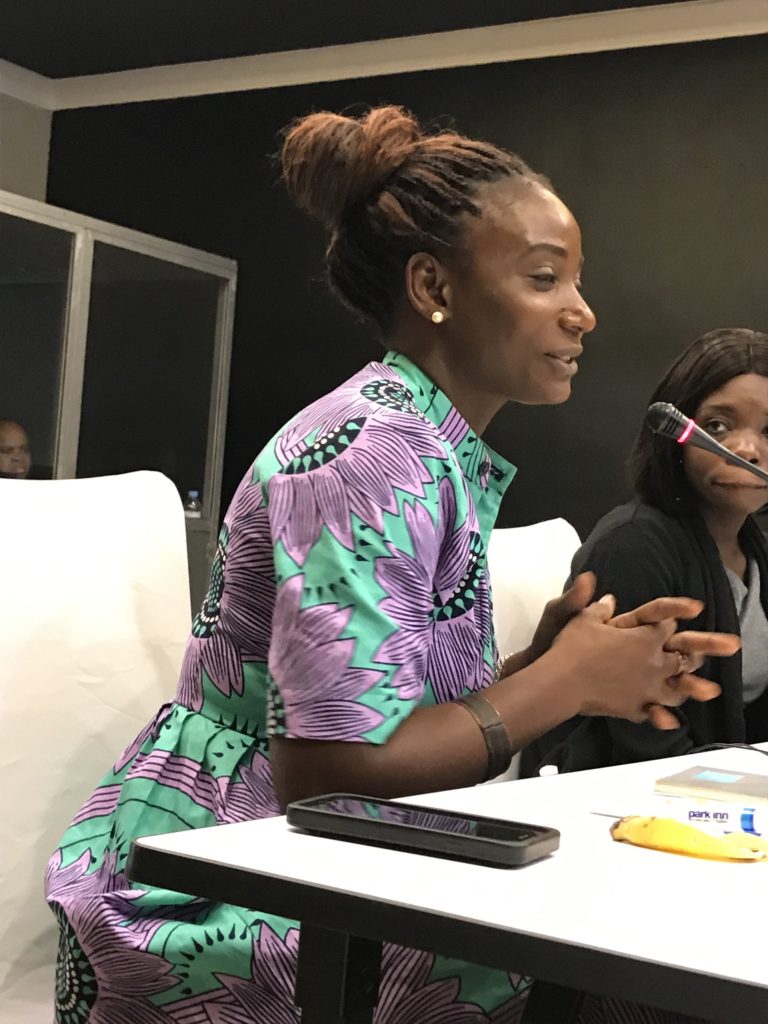
Amplifying Women's Voices
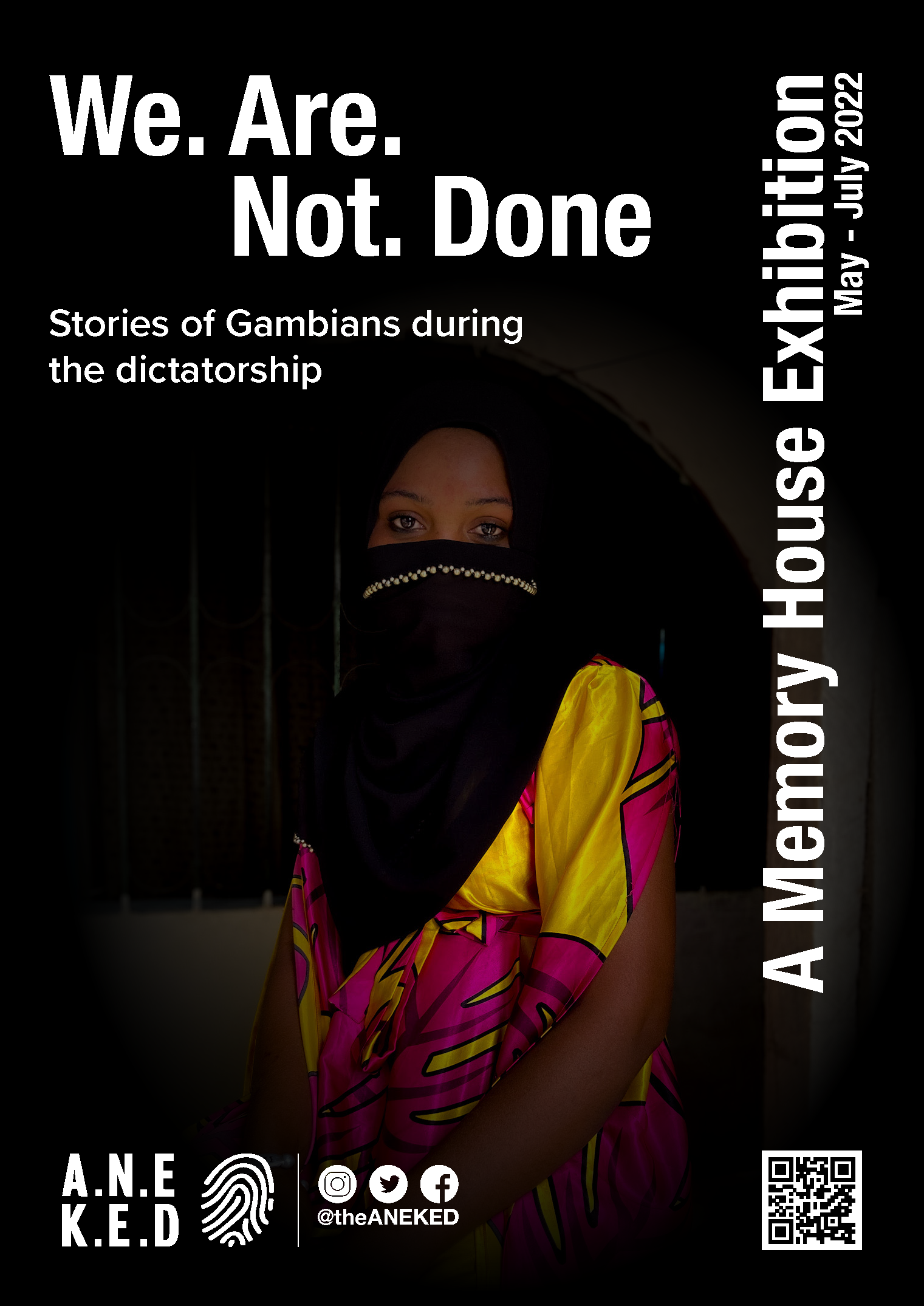
Memory House
On October 23, 2021, thanks to the support of GIJTR, local Gambian partner, ANEKED, opened its long-awaited memorialization and educational center, “Memory House", which became the first permanent memorialization initiative in the country.
Memory House displays ANEKED's landmark exhibition, "The Duty to Remember," as well as "We.Are.Not.Done," an exhibition that shares stories of Gambians during the Jammeh regime. Memory House also hosts educational programs and online activities that promote constructive dialogue, debate, and discussion around human rights and justice.
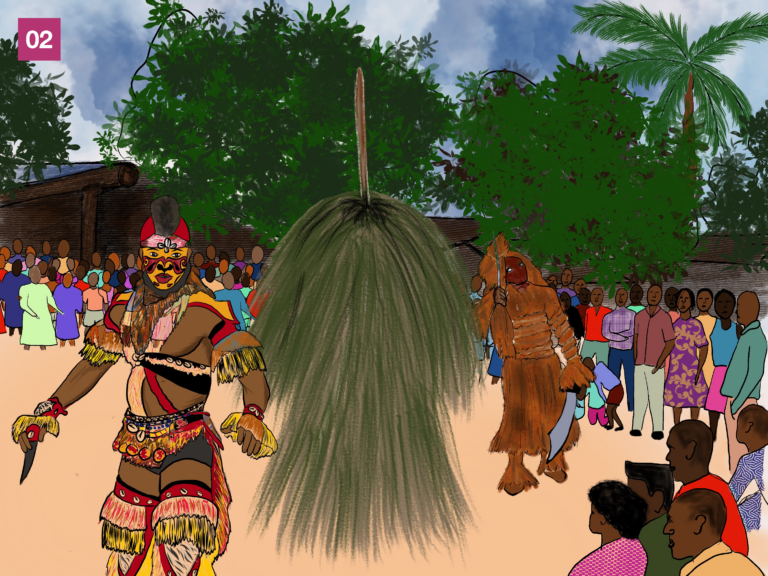
TRRC Child-friendly Report
Thanks to the support of the GIJTR, local partner in The Gambia, Fantanka, developed a child-friendly version of the TRRC Report. This version is a Summary of the TRRC’s findings and recommendations, but also includes a short introduction to transitional justice, with a particular focus on the Gambian context. With this Report, Fantanka aims to complement the work of the TRRC and the Gambian government in extending the reach of the TRRC’s Report. Fantanka recognizes the need to involve children and young people as active stakeholders in the country's transitional process and this report is geared towards that objective.
In partnership with a local Gambian organization, Women in Liberation and Leadership, GIJTR developed a flip-book to help everyday citizens better understand the current transitional justice process in the Gambia.
